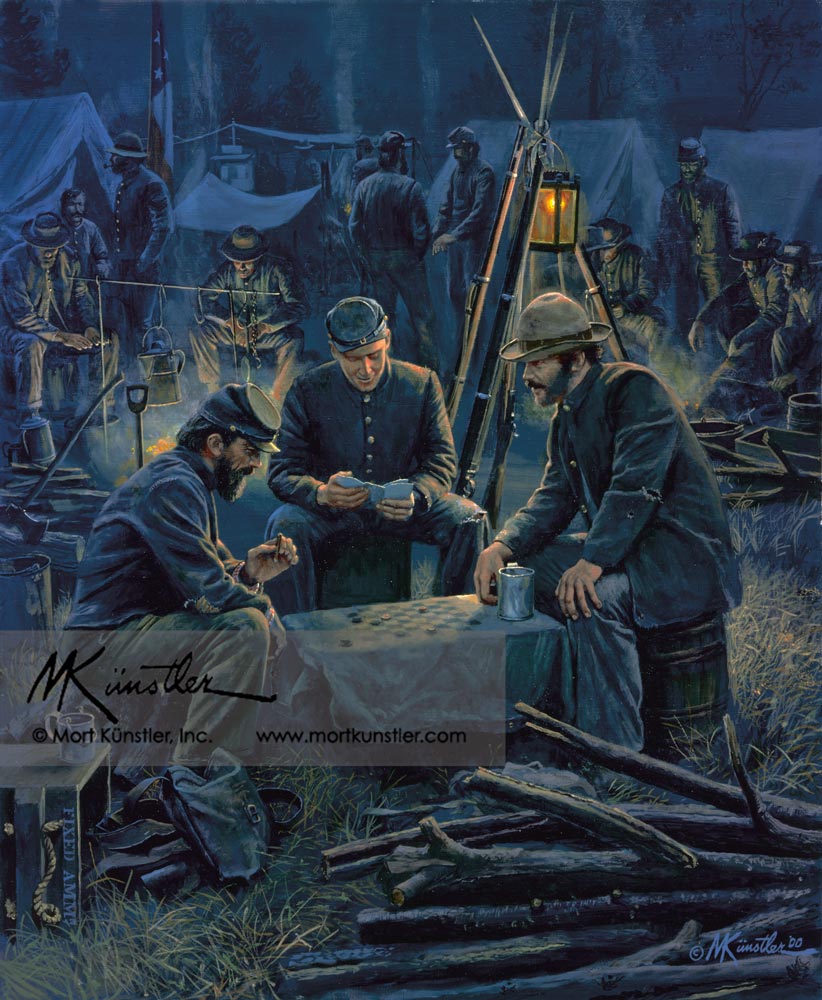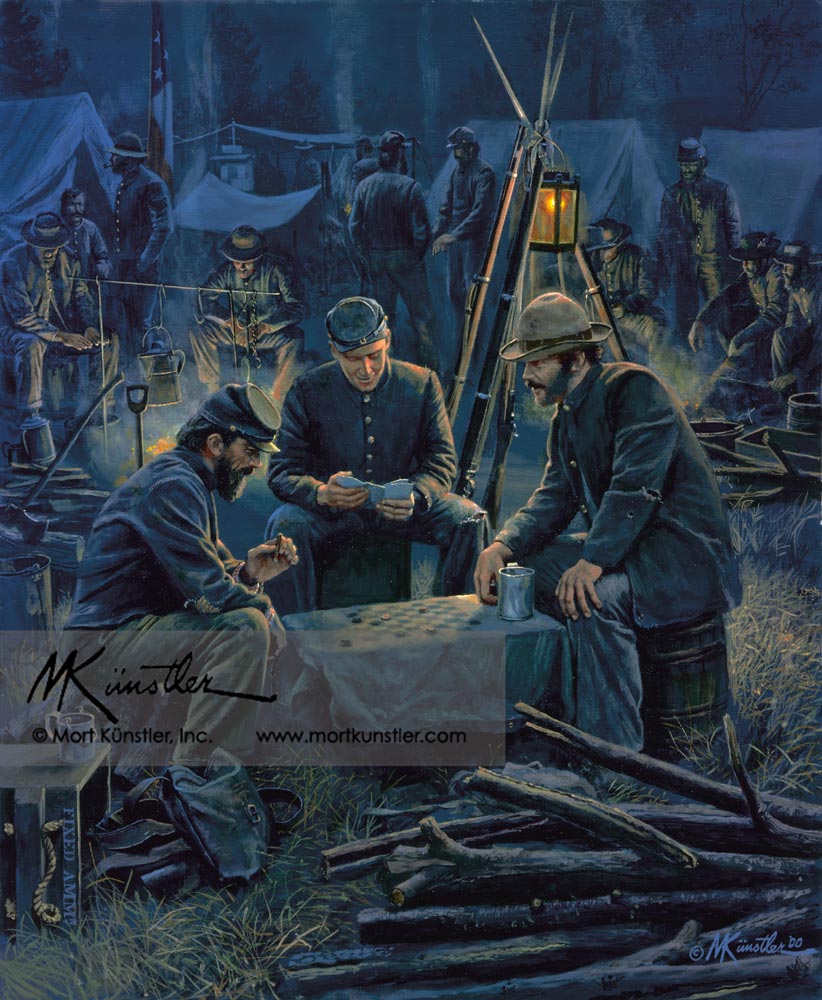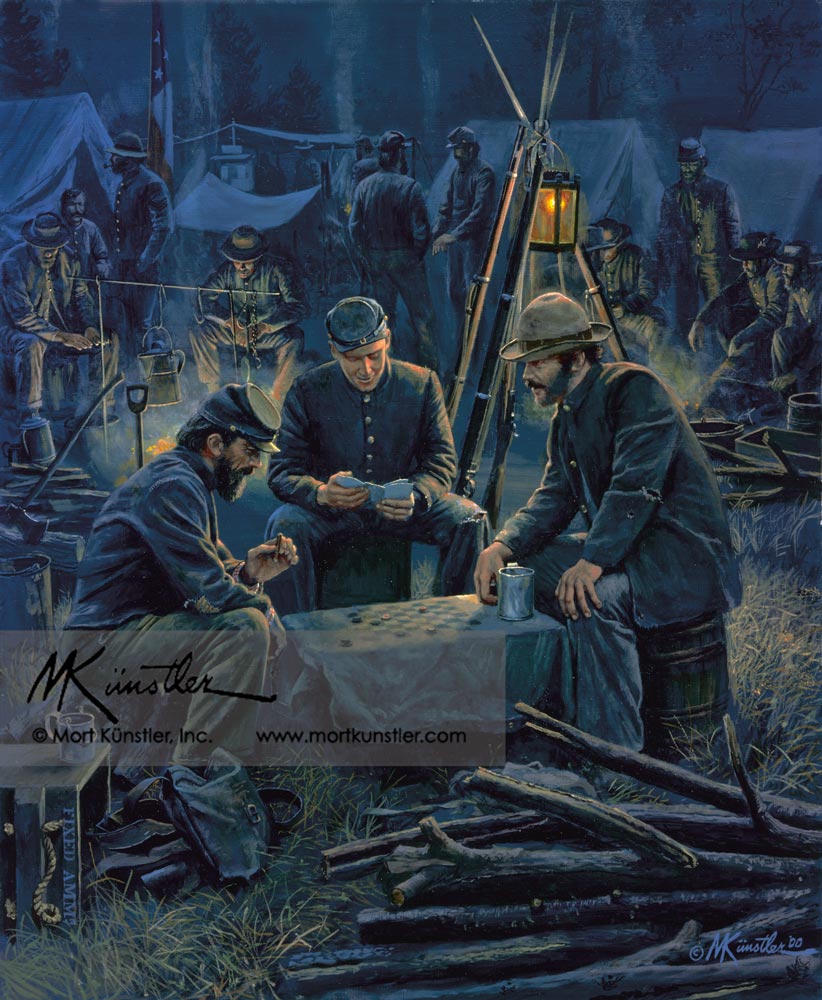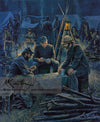The Official Mort Künstler Website
Letter From Home - limited edition print
Letter From Home - limited edition print
Couldn't load pickup availability
LIMITED EDITION PRINTS
Paper Prints
Reproduction technique: Fine offset lithography on neutral pH archival quality paper using the finest fade-resistant inks.
Each print is numbered and signed by the artist and accompanied by a Certificate of Authenticity.
Image Size: 19” x 15¼” • Overall Size: 25” x 20¼”
Signed and Numbered • Edition Size: 1150
Artist’s Proof • Edition Size: 100
Historical Information
“O, if this war was over, you and all the soldiers could come home and stay home in peace.” So read a letter from home received by a soldier in Robert E. Lee’s army in 1863. It was a typical sentiment expressed in letters sent to soldiers of both the North and the South. Among the hardest burdens borne by troops in this bloodiest of all American wars was the separation from loved ones.
Receiving a letter from home was a heart-stirring event for war-weary troops yearning for the simple pleasures of peace. News from the family, bits of gossip, words of encouragement from parents and siblings, endearing sentiments from wives or sweethearts – all provided welcome diversion from dull duties and battlefield dangers.
“Mother give me her little sheep, and I will have the wool to make you some stockings,” wrote a young son to a soldier father in the Army of Northern Virginia. “Mother says I am a good boy and smart too…” Such poignant reminders of home could refresh tender memories in a soldier, but could also rekindle the pain of separation. “There ain’t a day, no hardly an hour, but what I am thinking of you and the children,” a dutiful Johnny Reb replied to the wife he left behind. “I look at your photograph and fear it is the last I shall see of you.” For most soldiers, however, the pleasures afforded by mail far outweighed the pain. Letters were read and read again – repeatedly. “Please rite me agin soon,” one Southern soldier asked the folks back home, “for I am mity sad and lonesom.” In the lull between battles, even amid the ruckus of a bustling nighttime camp, a letter from home was a priceless treasure of hope.
Mort Künstler’s Comments
Many of my paintings take years for the idea to germinate and become a finished work. Letter From Home is one.
In 1993, I did a book, Gettysburg: The Paintings of Mort Kunstler, which was the official companion book to the Turner motion picture. The book contained a mixed media study with three soldiers playing checkers. It was done as a vignette. After years of thinking about the potential for a finished, squared off painting using that theme, I finally came up with Letter from Home.
The study gave me the basic poses of the three main figures. I decided to paint them as Confederate soldiers because of the colorful, rag tag look that they have, as opposed to the well equipped look-alike uniforms and accoutrements of the Federal Army. I also decided that I wanted to do a night scene because my previous painting, His Supreme Moment, was in daylight. This gave me the opportunity for some interesting lighting effects. To read a letter at night, I felt that a natural source of light for a situation like this would be a lantern hanging from some stacked arms, tripod style.
In the original study, the checker players were the center of interest. I kept the players – checkers was a popular game during the war and were often played on a makeshift checkerboard that was painted on the inside of a poncho or blanket. In Letter from Home, however, I deliberately painted the letter in the center of the canvas and worked the rest of the scene around that point. I added other camp activities in the background to try to illustrate an observation of a Civil War soldier that the war was interminable boredom interspersed with sheer moments of terror. Games and duties provided much-needed distractions from the hardships of war, but nothing provided more relief than a letter from home.





